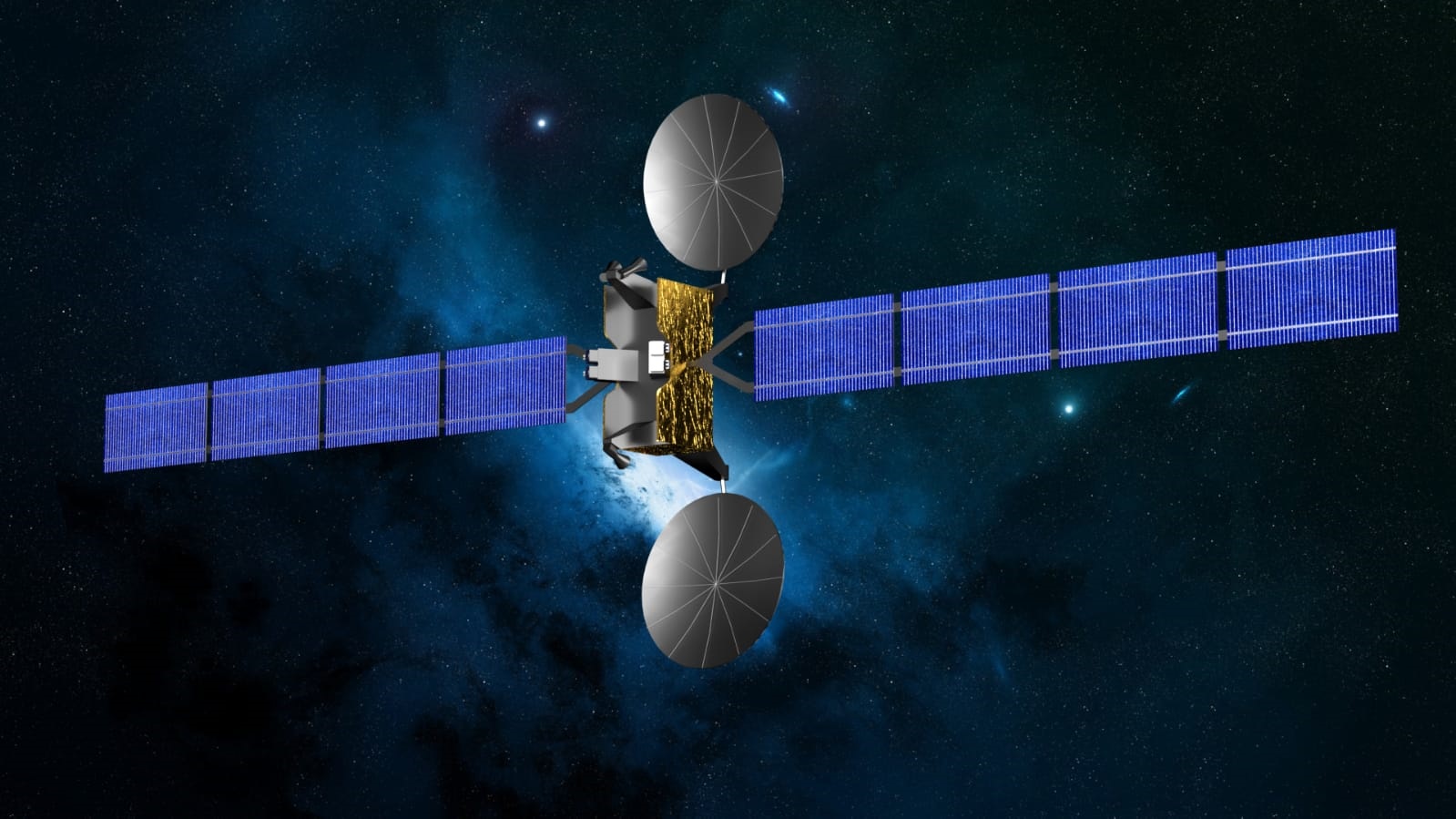
Concept art for IAI’s Mini Communication Satellite design. (IAI)
TEL AVIV: For decades, Israel has stood as one of the smallest nations to have an indigenous space program, with a national security capability built around large, exquisite capabilities.
Now, with the potential of small satellites — cheaper to launch, cheaper to design and cheaper to lose in a combat scenario — being embraced around the globe, Israel’s government is considering its options. And unsurprisingly, Israel’s major industrial players have followed suit, with the hopes of cashing in on both domestic needs and a potentially robust export market.
Isaac Ben-Israel, the chairman of the Israeli space agency, told Breaking Defense that smaller, lighter systems are becoming increasingly popular, noting the decrease in launch prices and the benefit that “when in space, little energy is needed in case the satellite goes out of its designed orbit.”
Ben-Israel said that Jerusalem made a decision many years ago to achieve full capability in space with security at top of mind. Hence, the focus on spy satellites first, followed by communication satellites and launchers. “These capabilities are being upgraded all the time,” he said, singling out a new system from Israel Aerospace Industries (IAI), Israeli’s leading defense firm, as an example.
That system, the Mini Communication Satellite, or MCS, was rolled out on Oct. 25. Weighing roughly 700 kg (1,540 pounds) upon launch, the digital communication payload is significantly lighter than IAI’s previous full-size communication systems, which have an average weight of 5,000 kg (11,000 pounds). As a result, multiple MCS can be launched as part of a rideshare with other satellites, lowering the cost per launch.
IAI, which is the main space company in Israeli, says that the new satellite, which is equipped with an electrical propulsion system developed specifically for this design, has a life expectancy of no less than 14 years, and is specifically designed to provide “multi-zone communication services to customers or countries with diverse communication needs.”
The capability is based off IAI’s development of the Dror-1, a national communication satellite that IAI went under contract to build in 2020. As part of that, the company developed an advanced digital communication payload and a “space smartphone” capability it says will provide flexibility for operators
According to Shlomi Sudri, general manager of IAI’s space division, the MCS can serve as either a complementary or focused regional system. Notably, he said, “IAI is in touch with a number of customers globally” about buying the new design.
While the MCS is aimed more at the international market than a domestic one, it goes without saying that IAI having this capability in-country could benefit the Ministry of Defense down the road, should the government decide it needs alternative systems.
Accompanying the MCS is a new ground cloud-based “virtual” ground station being offered from IAI, known as the Blue Sphere. The company claims the new ground station will increase the amount of data coming to and from the satellite system.
RELATED: Lockheed, IAI Tie Up On Missile Defense Is Bad News For Boeing
The setup, per the company, will allow the satellite to broadcast data to any ground stations equipped with the software, where it is immediately uploaded into the cloud. This means that rather than a user needing to wait for the satellite to pass overhead of any one ground station, the satellite can transfer information to any Blue Sphere equipped console — thus, operators can receive the information even if the satellite is halfway around the world.
Improved ground station technology is vital for future space operations, according to respondents of the Breaking Defense Space Survey. 65% of respondents described ground-based space capabilities as either “very important” or “extremely important” for their mission, with ground stations viewed as the most important terrestrial capability.
For years, IAI has had a stranglehold on Israel’s space procurement. But the growing demand for space assets, and the willingness to look to smaller systems as opposed to hugely expensive, exquisite capabilities, means other companies are looking to get into the game.
One key part of Israeli’s space structure are a number of advanced spy satellites in Low Earth Orbit, known as the Offeq series developed and manufactured by IAI. However, these systems cannot keep a persistent watch over areas of interest, which creates potential vulnerabilities when watching for ballistic missile launches.
As a result, the Israeli MoD contracted Rafael to develop a classified series of SIGINT nano-satellites that will operate in swarms to allow Israel to get real time warnings on evolving threats
These satellites are designed to locate and define electromagnetic signals emitted by communication systems and radars, giving a more efficient early warning system for launches.
RELATED: Israel Plans Anti-Missile Nano Satellite Constellation
Smaller startups are also looking to cash in. Perhaps the most notable is a company called Effective Space, which is working to develop a fleet of “maintenance satellites,” weighing less than 880 pounds each that will attach themselves to an older satellite already in orbit and serve as essentially a replacement propellant.
Earlier this year Astroscale US (the American subsidiary of Japan-based Astroscale), purchased the rights to that design from Effective Space, with Arie Halsband, Effective’s founder, becoming CEO of the new Astroscale Israel.
One Israeli government source described the deal as “the beginning of a commercial competition between the Israeli companies and those in other countries” over small satellite systems.
Another Israeli company, NewRocket, is developing a gel based engine propellant, which the company is marketing as stable and non-toxic — a “green propulsion” capability that has the benefits of both liquid and solid propellants. A company spokesman said the technology will meet the “strictest industry regulations.”






















